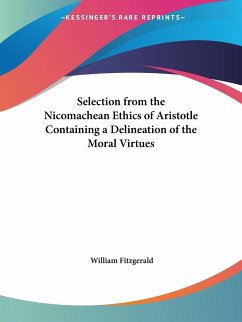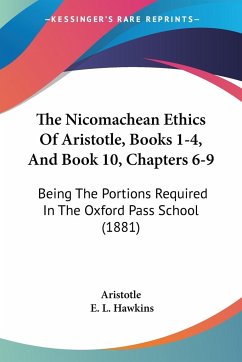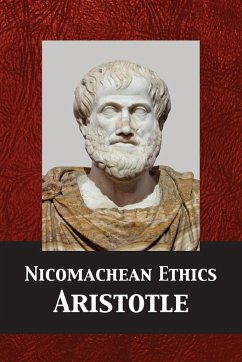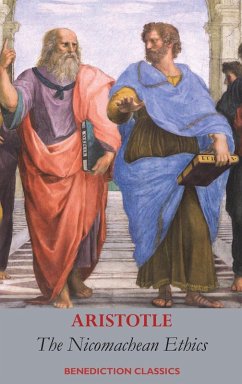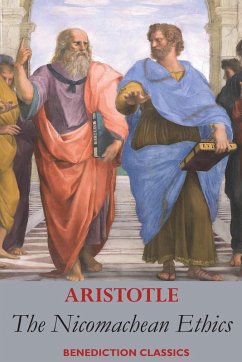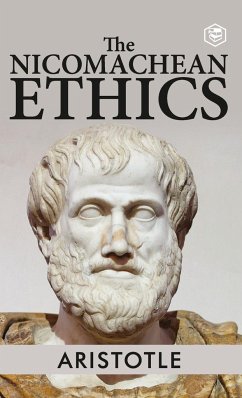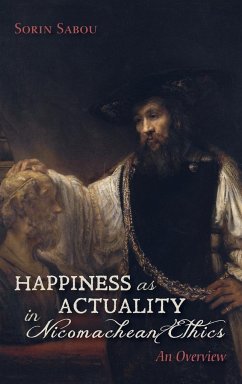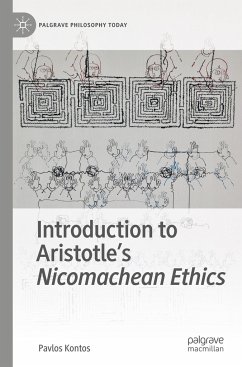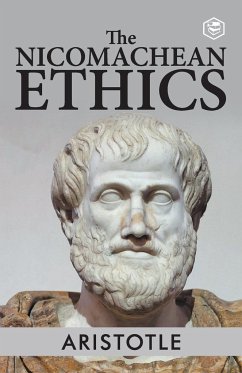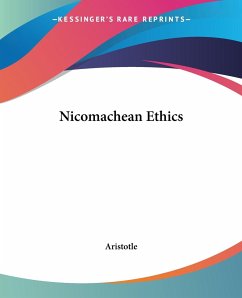
Nicomachean Ethics
Versandkostenfrei!
Versandfertig in 1-2 Wochen
24,99 €
inkl. MwSt.

PAYBACK Punkte
12 °P sammeln!
Nicomachean Ethics is a philosophical treatise written by the ancient Greek philosopher Aristotle. It is considered one of the most important works in Western philosophy and is a cornerstone of Aristotelian ethics. The book is named after Aristotle's son, Nicomachus, to whom it was dedicated. The book is divided into ten books or chapters, each of which explores different aspects of ethics and morality. Aristotle begins by defining happiness as the ultimate goal of human life and argues that it is achieved through virtuous action. He then goes on to explore the nature of virtue, including how ...
Nicomachean Ethics is a philosophical treatise written by the ancient Greek philosopher Aristotle. It is considered one of the most important works in Western philosophy and is a cornerstone of Aristotelian ethics. The book is named after Aristotle's son, Nicomachus, to whom it was dedicated. The book is divided into ten books or chapters, each of which explores different aspects of ethics and morality. Aristotle begins by defining happiness as the ultimate goal of human life and argues that it is achieved through virtuous action. He then goes on to explore the nature of virtue, including how it is acquired and how it relates to other ethical concepts such as justice, friendship, and pleasure. Throughout the book, Aristotle emphasizes the importance of practical wisdom and the role of reason in ethical decision-making. He also discusses the relationship between ethics and politics, arguing that the state has a role in promoting virtuous behavior among its citizens. Nicomachean Ethics is a complex and nuanced work that has been the subject of extensive interpretation and debate over the centuries. It remains a seminal work in the history of philosophy and continues to influence contemporary ethical thought.The Good, and how to get there.This scarce antiquarian book is a facsimile reprint of the old original and may contain some imperfections such as library marks and notations. Because we believe this work is culturally important, we have made it available as part of our commitment for protecting, preserving, and promoting the world's literature in affordable, high quality, modern editions, that are true to their original work.



